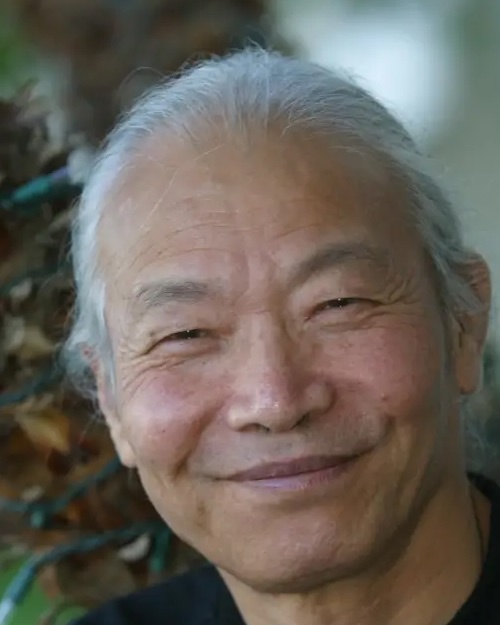Gao Ertai (b. October 15, 1935), a native of Gaochun, Jiangsu Province, is a painter, writer, aesthetician, and philosopher. He graduated from Jiangsu Normal College in 1955, and was assigned to a middle school in Lanzhou, Gansu Province, where he worked as an art teacher. He was labeled a Rightist in 1957 for his thesis "On Beauty," which argued that beauty was subjective and up to individual free will to determine–a position that ran contrary to Communist Party orthodoxy, which says that beauty is an objective fact that is determined by the artist's political attitude.
Gao was then dismissed from his job and was exiled to the Jiabiangou labor camp in Jiuquan, Gansu Province, for re-education through labor. His father was also persecuted and died during the Anti-Rightist Campaign. In 1959, he was sent to Lanzhou to create a propaganda painting for the Gansu Provincial Museum, and escaped having to spend the Great Famine in Jiabiangou, where most inmates died of starvation. In the spring of 1962, he was released from re-education through labor and went to work at the Research Institute on Dunhuang Cultural Relics. When the Cultural Revolution broke out in 1966, he was persecuted for his writings on philosophy and art during his time at Dunhuang, and was put to work in the “cowshed” (a makeshift prison for intellectuals who were labeled class enemies) on the site of the Institute. His wife was implicated and exiled to work in a rural area, and died of illness there. From 1972 to1976, he was sent to the May Seventh Cadre School in Jiuquan for re-education through labor again. After his rehabilitation in 1977, he taught at Lanzhou University, and later worked at the Institute of Philosophy of the Chinese Academy of Social Sciences, Sichuan Normal University, Nankai University, and Nanjing University.
In 1987, he was persecuted during the Anti-Bourgeois Liberalization Movement; his daughter was disqualified from admission to a university. She was later diagnosed with schizophrenia, and died a few years later. In 1989, following the Tiananmen uprising, Gao Ertai was arrested at Nanjing University for incitement of counter-revolutionary propaganda. He was released in 1990 but continued to be persecuted. He left Chengdu for Hong Kong on July 11, 1992 through “Operation Yellowbird" (a Hong Kong-based operation following Tiananmen to help Chinese dissidents escape arrest by facilitating their departure overseas via Hong Kong). He arrived in the United States in 1993. He lived in New Jersey and now lives in Las Vegas.
As an independent intellectual, Gao Ertai promotes the pursuit of human emancipation, respect for human dignity and freedom, and questions the legitimacy of the one-party rule.
